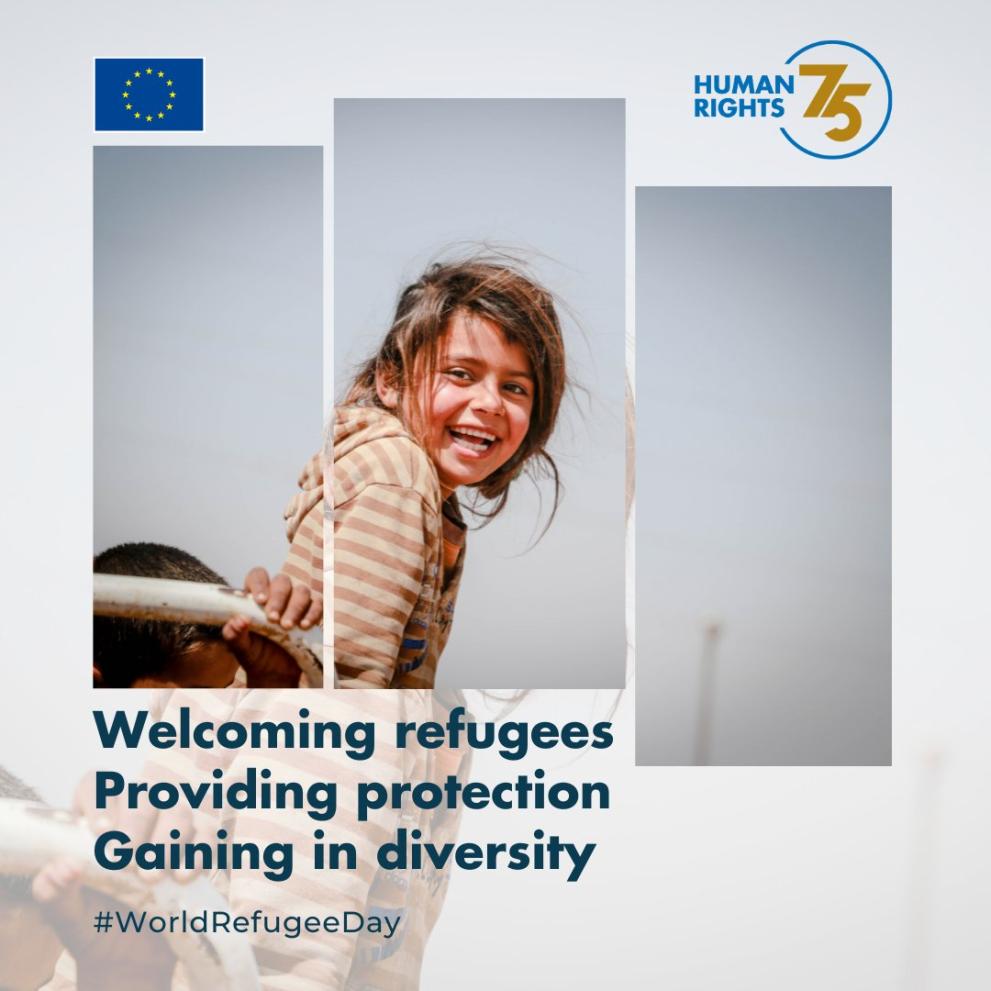
"Today, more than 110 million people are forcibly displaced around the world. On the occasion of World Refugee Day, we reiterate the EU's commitment to continue being a leading humanitarian and development donor and to step up our efforts to ensure that the EU remains a place where refugees find protection and safety.
Globally, the EU is working to help improve the situation of millions of refugees and forcibly displaced persons caught up in conflicts or major humanitarian crises such as those in Afghanistan, Syria, Venezuela, Myanmar, Yemen, South Sudan, Sudan, the Democratic Republic of the Congo and Burkina Faso. We deliver life-saving aid including food, shelter, education, health care, as well as livelihood support.
While the vast majority of those forcibly displaced are outside the EU, we also support significant numbers of refugees in Member States.* In particular, with Russia's war against Ukraine, today Member States are hosting around 4 million people from Ukraine under temporary protection, with more than half being women and children. The EU also provides protection and humanitarian assistance to internally displaced persons in Ukraine, and we support refugees from Ukraine in the Republic of Moldova.
The journeys of refugees are often full of hardship and danger, with thousands risking their lives across deserts and seas in the hope of a better future. The EU is committed to work on comprehensive action to prevent the loss of life and provide orderly and safe pathways. We are working with EU Member States and international partners on resettlement and complementary pathways that can help scale-up admission places, from priority regions. The EU resettlement and humanitarian admission scheme was launched by the European Commission on 10 May 2023, kicking off the new pledging exercise for 2024-2025.
The EU welcomes the upcoming Global Refugee Forum in December 2023 as an important opportunity to better share global responsibility: to be truly effective we must all step up our efforts and work in partnership to address the multiple complex challenges created by forced displacement."
Background
The EU reiterates that the right to seek and enjoy asylum and the principle of non-refoulement, as enshrined in the 1951 Refugee Convention and in the EU Charter of Fundamental Rights, must be respected at all times.
The EU and its Member States also make an important contribution to global resettlement efforts. Since 2015, EU resettlement schemes have helped more than 115,000 vulnerable refugees find a safe haven in EU Member States. In addition, almost 45,000 Afghans at risk were admitted to the EU since 2021. EU Member States have until mid-September 2023 to submit their pledges for the 2023-2024 pledging exercise.
A sustainable approach to migration management requires partnerships among countries and a balance between solidarity and responsibility. The European Commission has been tirelessly working to support Member States both with operational and legislative instruments. Through the New Pact on Migration and Asylum, the EU will strengthen the management of asylum applications in the EU, protecting refugees and people in need of international protection, as well as and supporting refugee-host countries. The European Commission is supporting co-legislators to finalise negotiations on the Pact by February 2024, in line with the Joint Roadmap.
Details
- Publication date
- 20 June 2023
- Author
- Representation in Cyprus
